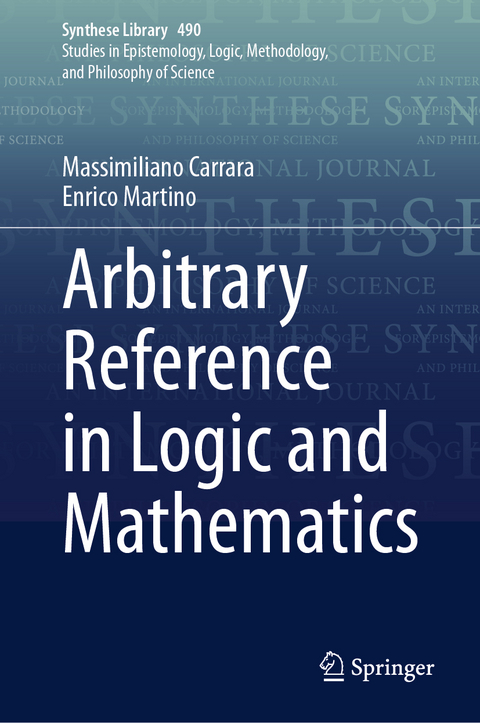
Arbitrary Reference in Logic and Mathematics
Springer International Publishing (Verlag)
978-3-031-66451-9 (ISBN)
This book develops a new approach to plural arbitrary reference and examines mereology, including considering four theses on the alleged innocence of mereology. The authors have advanced the notion of plural arbitrary reference in terms of idealized plural acts of choice, performed by a suitable team of agents. In the first part of the book, readers will discover a revision of Boolos interpretation of second order logic in terms of plural quantification and a sketched structuralist reconstruction of second-order arithmetic based on the axiom of infinite, a la Dedekind, as the unique non-logical axiom. The work goes on to analyse the pros and cons of the new interpretation, also with respect to Linnebo s objections to the thesis that second order logic is genuine logic. A theory of concepts that can be labelled as a theory of logical concepts is expounded.
In the second part of the book, the authors consider grounding megethology on plural arbitrary reference and argue that the arguments for the ontological innocence of mereology are not conclusive and that - for a certain use of mereology - a thesis of innocence, similar to that of plural arbitrary reference, is defensible. The work proposes a virtual theory of mereology in which the role of individuals is played by plural choices of atoms.
This considered work will appeal to scholars from branches of analytic philosophy, logic and the philosophy of mathematics in particular.
Massimiliano Carrara is an Associate Professor of Logic and Philosophy of Language at the University of Padua, Italy. In addition to his work on logic and philosophy of logic, he has an ongoing research project on analytic metaphysics. Massimiliano Carrara has completed several editing projects. He is or has been guest editor for Applied Logic, Grazer Philosophische Studien, Loqique et Analyse, Review of Philosophy and Psychology, Topoi, Studia Leibnitiana and Mind and Society. He co-edited a volume for Springer: Individuals, Essence and Identity. Themes of Analytic Metaphysic (2002). Recently, he has published a volume with Oxford University Press entitled Unity and Plurality. Logic, Philosophy, and Linguistics (2016).
Enrico Martino was Associate Professor of Logic at the University of Padua, Italy. His main interests are philosophy of logic and philosophy of mathematics. He has written papers for the Journal of Philosophical Logic, Topoi, Studia Logica, Review of Symbolic Logic, History and Philosophy of Logic and the Grazer of Philosohische Studien.
Preface.- 1. On Arbitrary Reference.- 2. On Plural Arbitrary Reference.- 3. On Arbitrary Fictional Models.- 4. Second-Order Logic and Plural Arbitrary Reference.- 5. Logical Concepts and Plural Arbitrary Reference.- 6. Plural Arbitrary Reference and mereology.- 7. Grounding Megethology on Plural Arbitrary Reference.- 8. The Mereological foundation of Megethology.- 9. Final ruminations.- Index.
| Erscheinungsdatum | 20.08.2024 |
|---|---|
| Reihe/Serie | Synthese Library |
| Zusatzinfo | XI, 95 p. |
| Verlagsort | Cham |
| Sprache | englisch |
| Maße | 155 x 235 mm |
| Themenwelt | Geisteswissenschaften ► Philosophie ► Philosophie der Neuzeit |
| Schlagworte | Arbitrary reference • Boolos plural quantification • Boolos second order logic • Frege traditional logicism • Linnebo logic • Logicality of second order logic • logic plural arbitrary reference • mathematics plural aribitrary reference • Megethology • Mereology • non mereological axiom • ontological innocence mereology • Øystein Linnebo • philosophy plural arbitrary reference • Plural acts of choice • plural quantification • Plural reference • second order logic • structuralist second-order arithmetic |
| ISBN-10 | 3-031-66451-5 / 3031664515 |
| ISBN-13 | 978-3-031-66451-9 / 9783031664519 |
| Zustand | Neuware |
| Informationen gemäß Produktsicherheitsverordnung (GPSR) | |
| Haben Sie eine Frage zum Produkt? |
aus dem Bereich


